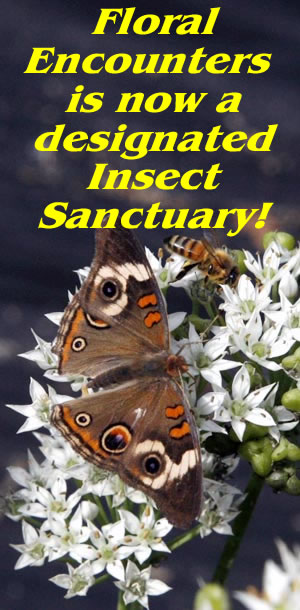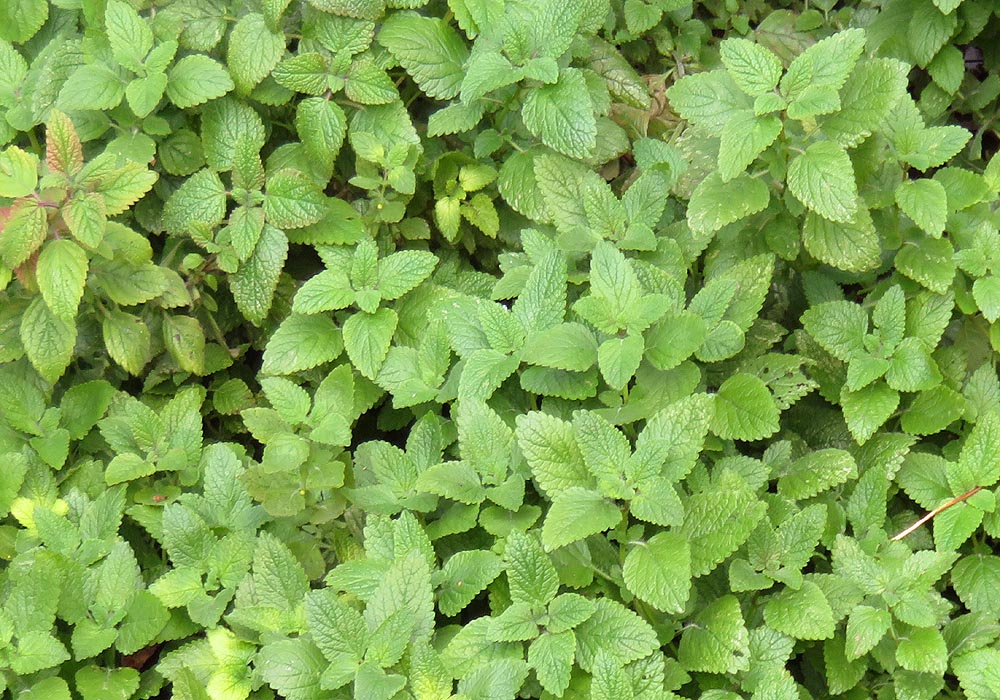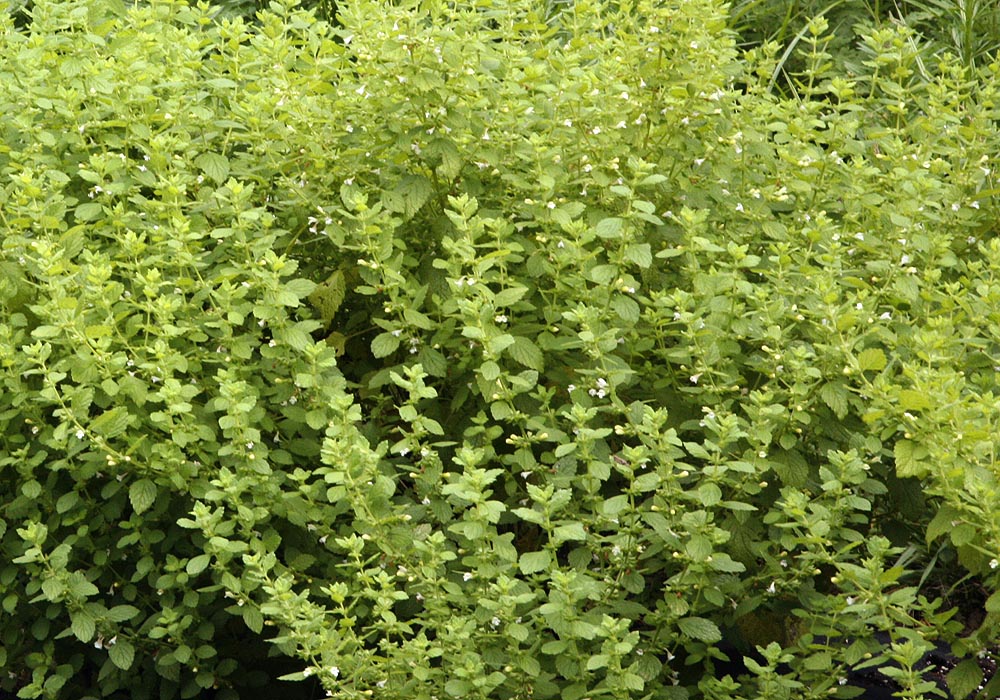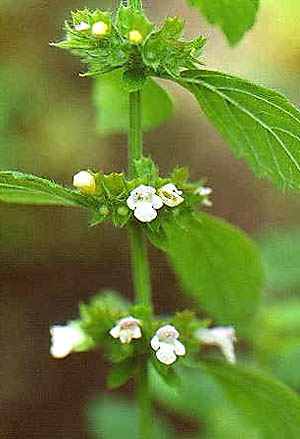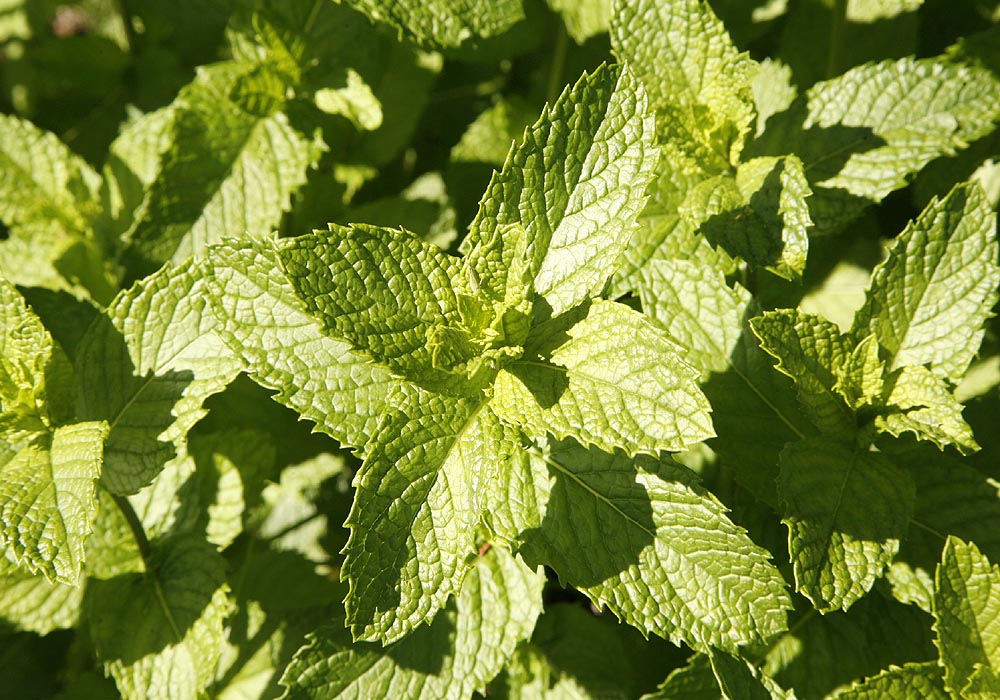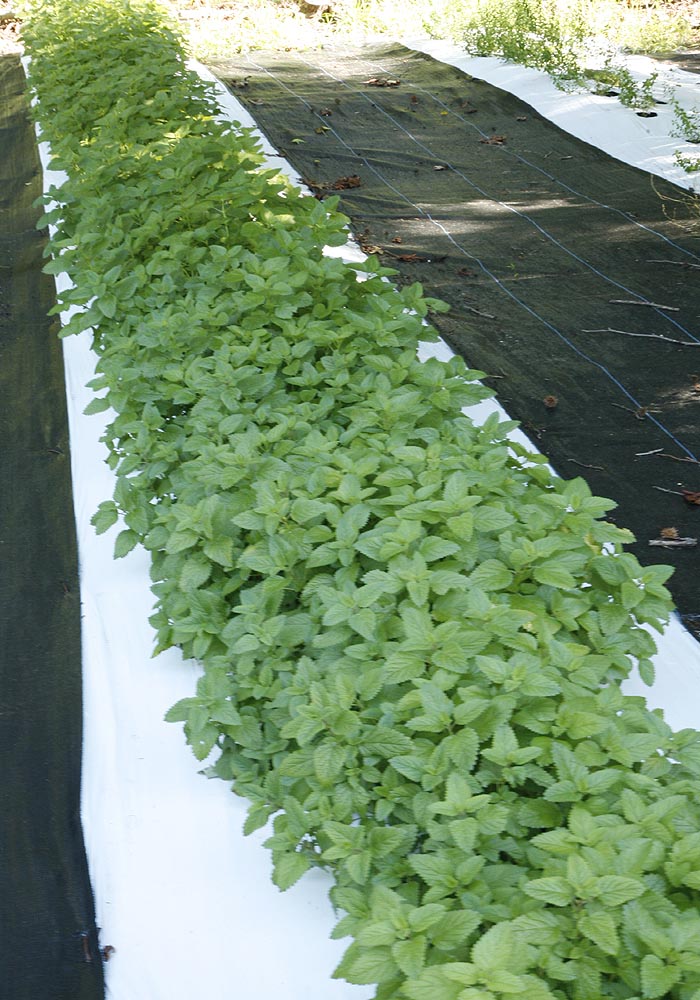This lovely plant is a great addition to any garden. It is easy to grow, is very drought tolerant and is quite happy in either full sun or dappled shade. Good plant for the north side of a buildings. The bright green crinkly leaves make it an attractive accent plant and its great on decks in containers. Grown mostly for its wonderful lemon aroma when the leaves are touched or crushed. Lemon Balm has been used to make a refreshing relaxing tea for centuries. A powerful herb it's a must for most herb gardens. It's a very tough hardy perennial growing from zones 3-9 once established takes no care except cutting down the dead growth every winter or spring. The bright leaves come back every year and refresh a spring garden. Due to its strong lemon scent deer and rabbits don't eat it
Description of Lemon Balm (Melissa officinalis).
Lemon Balm is a hardy perennial plant that dies down in the winter. It has bright green crinkly leafs which are slightly hairy, with strongly toothed margins. These are arranged in pairs on each side of a square stem. The leaves are very attractive in their own right and make a good addition to any flower bed. The plant grows to about 2-3 feet (60-92 cm) in height forming a clump that will spread if not contained. The flowers are small, white, pale lilac or yellow and arranged in irregular whorls at leaf nodes on upright stems. They are not showy. Plants are grown for their interesting leaves and wonderful lemon scent that the leaves produce with bruised.
Growing Lemon Balm (Melissa officinalis) from Seed.
Very easy to grow but takes a while to germinate so patience is needed. Sowing in seed trays is recommended due to slow germination as its easier to control and see your little plants. Outside they may be smothered by weeds before they become established. Sow thinly or use individual cell trays so that plants can be removed as they grow without disturbing seeds that have still to germinate. Seeds are small so need only a very light covering. For more information on seed growing see our
general growing instructions.
Location and Care of Lemon Balm (Melissa officinalis).
Lemon balm will grow in zones 3-9, although zone 4 and up will need to mulch it in the winter. Placement will depend on your zone. It does best in full sun in zones 6b and colder but will take semi shade easily but does badly in full shade. If growing to harvest the leaves full sun is recommended for these zones. For 7b and warmer some shade is suggested as it does not tolerate the heat that well and will do better with shade from the noonday sun. North sides of buildings is an excellent position. May do better in higher shade in some warmer zones. Its not really fussy about soil type provided its well drained, can grow on poor soil as well as rich and some literature suggests that the lemon aroma is stronger with poorer soils so don't over fertilize. In full sun it will benefit from some additional watering if rainfall is scarce especially on very well drained sandy soils but for the most part is fairly drought tolerant.
Lemon Balm needs little care once its established just cut away all the dead material at the end of the year or early spring to allow unhampered growth of the new leaves. It makes the plant look nicer and easier for you to harvest leaves whenever you desire. While Lemon balm is a member of the mint family it does not spread like regular mint. The crowns will grow in size as the years progress and it may self seed to some degree but it is easily contained.
It's a great plant for containers especially for shaded patios or decks where it's interesting leaves and lovely scent are very welcome. Pots keep it contained and in most zones the plants will survive in the pots over the winter without much extra care.
Culinary Uses of Lemon Balm (Melissa officinalis).
Fresh leaves can be chewed right off the bushes. They are delicious in salads and fruit salads and make a good substitute for lemon peel in recipes. Leaves can also be added to hot water to make a wonderful lemon tea. Chopped leaves can be added to fish and chicken dishes and sprinkled over fresh vegetables. Candied they are a great addition to any cake decoration. The leaves are also frequently used as one of the ingredients of pot-pourri.
Medicinal uses of Lemon Balm (Melissa officinalis).
Lemon balm has been used in herbal medicine for centuries for many different ailments. The most common being the treatment of fevers and colds due to its antiviral and antibacterial properties. It also have very calming properties as well as being a mild sedative making it excellent for treating mild headaches, insomnia and depression which can all occur during illness with fever. The powerful lemon oils act to calm the nervous system and area strongly antispasmodic. The oils are used in aromatherapy to help lift the spirit and reduce stress. The same effect can be achieved by inhaling the steam and drinking a cup of lemon balm tea. It has been found to reduce art palpitations, atrial fibrillation, high blood pressure. Externally lemon balm is used to treat cold sores, herpes, gout and insect bites.
The strong lemon aroma acts as an insect repellent
Common balm, Bee Balm, Sweet Balm,


